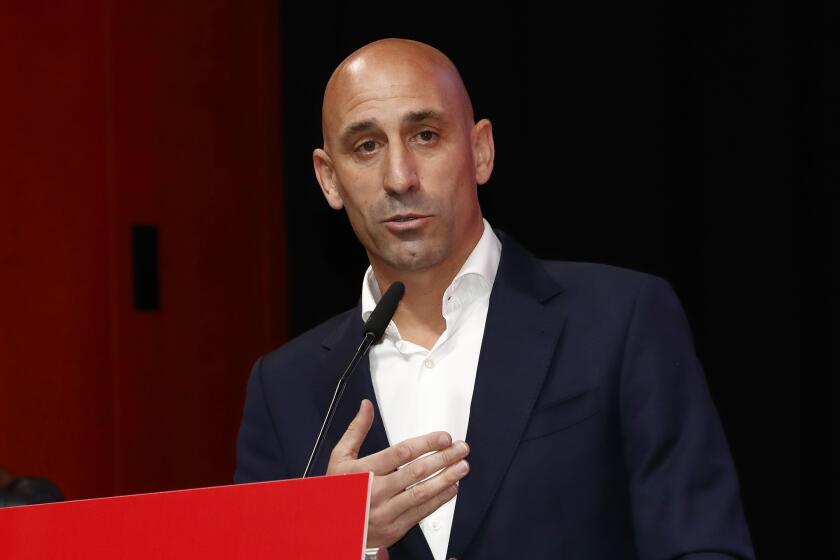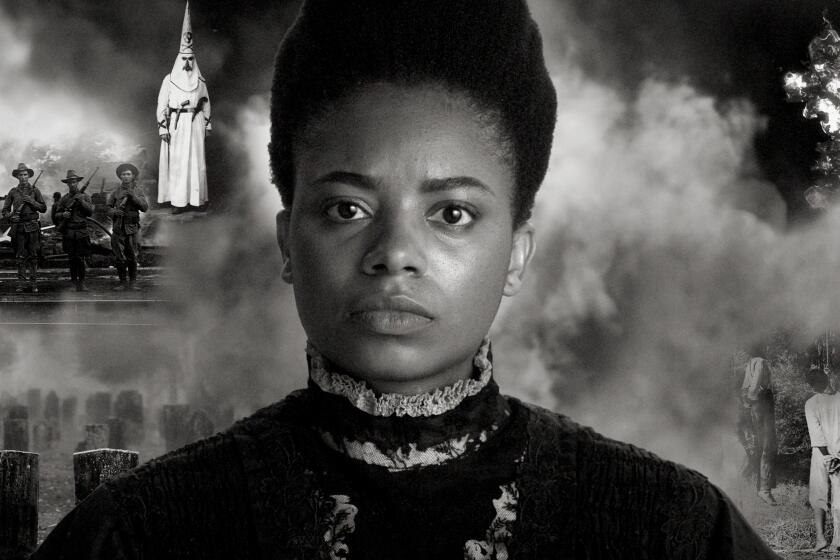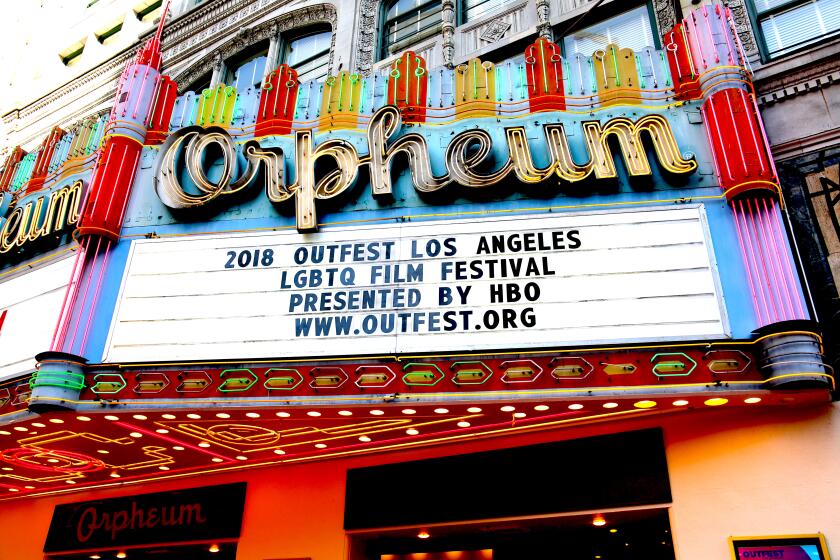‘I was glad it was not me’: Past World Cup champions sound off on Luis Rubiales scandal
TORONTO — In the documentary “Copa 71,” which had its world premiere Thursday at the Toronto International Film Festival, women footballers overcome the hurdles placed in their way by sexist officials to stage the first ever Women’s World Cup. More than half a century later, according to two members of that winning squad, actions by Spanish soccer federation chief Luis Rubiales show just how little has changed.
“We were shocked, but not surprised,” Danish national team player Ann Stengaard said of Rubiales kissing star midfielder Jenni Hermoso without her consent after Spain’s victory in the Women’s World Cup last month.
“I was glad it was not me, because I don’t know what [I would have done],” added Birte Kjems, as Stengaard made a slapping gesture to illustrate her teammate’s likely reaction.
The spirited discussion, which took place during an interview in the Los Angeles Times Studio at TIFF on Friday, reflected “Copa 71’s” boisterous account of the unsanctioned 1971 tournament in Mexico City. With remarkably detailed reconstruction of game footage and emotional conversations with members of the Danish, French, Mexican, Italian and English teams, the film, co-directed by Rachel Ramsay and James Erskine, is highly entertaining — but it doesn’t shy away from the misogynistic furor that surrounded the event, established by the disdain of FIFA, soccer’s governing body, and fueled by the media.
After Luis Rubiales planted an unwelcome kiss on star midfielder Jenni Hermoso, he could have apologized. Instead, his response has only deepened the scandal.
“We’re trying not to be depressing,” said Ramsay. “That’s why we wanted to make it a joyful and celebratory [film], quite visual, with a lot of color in it. You want it to be a joy to watch. And then you come away, and later on you’re like, ‘Oh, that was a lot of fun. But hang on, there’s something a bit icky.’
“We very much set that story in ‘71,” she continued. “It’s 50 years ago, clearly of its period. So when an audience is watching it, they see this and think, ‘Gosh, that happened 50 years ago? 50 years ago and still nothing’s changed?’”
As Erskine argued, Rubiales, who Spanish prosecutors on Friday accused of sexual assault and coercion over the kiss, sparked a lasting controversy not because his “ridiculous behavior” is new to the sport, but because “it’s undeniable: The sexism is there for the world to see.” (Rubiales, who had been suspended by FIFA over the incident, resigned Sunday.)
In fact, as the New York Times reported this week, one day after Spain fired women’s national coach Jorge Villa in the fallout, women’s soccer players in Spain faced misogyny long before Rubiales’ tenure as soccer federation chief, fighting everything from inappropriate comments and verbal abuse to inadequate compensation.
“They’ve been talking about this for years, and it took them winning the World Cup to finally be listened to. They’ve called this out for a long time,” Ramsay said. “The kiss is the straw that broke the camel’s back.”
After Venice and Telluride, it’s Toronto’s turn to shine. Our team on the ground at TIFF reveals what’s on their 2023 schedules.
More to Read
Only good movies
Get the Indie Focus newsletter, Mark Olsen's weekly guide to the world of cinema.
You may occasionally receive promotional content from the Los Angeles Times.














